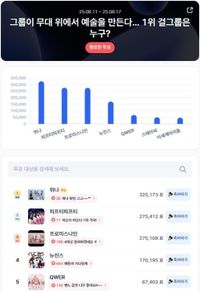In a week that saw the digital pulse of K-pop and trot fandoms beating louder than ever, two distinct names have risen to the top of Korea’s digital brand reputation charts for August’s second week: Hwankhee in the male trot category and Weena in the fiercely competitive female K-pop group division. Their victories, each marked by hundreds of thousands of fan votes, signal not just personal milestones but also broader shifts in the Korean music landscape, where genre boundaries blur and global influence grows at breakneck speed.
According to Star Daily News, Hwankhee clinched the number one spot in the male digital brand reputation weekly survey with a staggering 1,201,659 votes as of August 18, 2025. This is no small feat, especially considering the ever-expanding field of contenders in the trot scene. Hwankhee, once celebrated as the “Prince of R&B” for his work with the duo Fly to the Sky, has now firmly established himself as a leading figure in the trot genre—a transformation that’s been met with both critical acclaim and a groundswell of fan support.
Fans rallied behind Hwankhee with messages like “We always support you,” underscoring a sense of loyalty that’s propelled him to what many are calling his “second heyday.” The 1.2 million votes he received are a testament to the emotional connection he’s fostered, and to the versatility of his vocal prowess. As Star Daily News points out, “This breakthrough symbolizes Hwankhee’s new golden era, proving once again his ability to captivate audiences across genres with his emotive stage presence and vocal strength.”
But Hwankhee wasn’t the only artist to make waves this week. Kim Junsu, a renowned figure in the world of Korean traditional music, secured second place with 1,169,022 votes. Junsu’s journey from a member of the National Changgeuk Company to a runner-up finish on JTBC’s ‘Pungnyu Daejang’ in 2021, and later a top-seven spot on MBN’s ‘Hyeonyuk Gawang 2,’ has showcased his ability to bridge the gap between traditional Korean music and contemporary performance. His continued efforts to blend these worlds have drawn both attention and admiration.
Rounding out the top five in the male division were Kang Moon-kyung with 1,139,248 votes, Shin Seung-tae at 990,720, and Yoo Min with 926,424. The rest of the top thirty reads like a who’s who of rising and established talent: Jeon Jong-hyun, Chris Young, Lee Si-won, Oh Seok, Song Min-joon, Kim Kyung-min, Jin Woon, Lee Do-jin, Ahn Seong-hong, Cheon Rok-dam, Shin Yu, Park Seo-jin, Suh Byul-a, Jang Min-ho, Kim Yong-bok, Yoo Ji-woo, Young-tak, Jeong Da-han, Go Young-tae, Young-gi, Kim Jung-yeon, Song Do-hyun, Jo Myung-seok, and Moon Tae-jun. It’s a testament to the diversity and dynamism of Korea’s male vocal scene.
Meanwhile, on the K-pop front, The Public reports that Weena has taken the crown in the female group category with 325,173 votes, further cementing their status as a leading force in the next generation of girl groups. Fans cheered them on with chants of “Weena fighting, go go!” as the group defended their top spot, solidifying their reputation as a trend-setting act in a market known for its fierce competition.
Weena’s recent activities have only added to their momentum. After releasing their official Japanese debut mini album, We;Na World, in February, the group quickly made inroads overseas. The album soared to the top of the UK iTunes Store J-POP Top Album chart in April, marking a significant milestone in their quest for global recognition. The number one ranking in this week’s digital brand survey is seen as a direct reflection of their growing international fanbase and the unwavering dedication of their supporters.
“The first-place ranking shows a significant positive evaluation and strong fan support,” The Public notes, emphasizing how Weena’s blend of catchy hooks, dynamic performances, and relatable personalities has resonated with listeners both at home and abroad.
Second place in the female group category went to Pipipipip (also known as Fifty Fifty), who garnered 275,412 votes. Their fans, rallying under the banner “Let’s get Fifty Fifty to number one!,” have been particularly energized by the group’s recent contributions to the Netflix animation OST K-Pop Demon Hunters, where members Moon Chanel and Hana covered the song “Golden.” This project has sparked conversation about the group’s musical growth and potential for even greater achievements in the future.
Promise (Promis9) took third place with 275,109 votes, closely followed by Nuns (NewJeans) at 170,195 and QWER at 67,402. The rest of the top ten featured StayC, Lee Se-kyung, UAA, Uptown Girls, and Blank Pink (Blackpink), each bringing their own distinct style and fan following to the table.
This week’s results, as outlined by The Public, highlight the intensity of competition in the K-pop girl group arena. With many teams preparing for comebacks and global tours in the latter half of the year, the battle for fan loyalty and digital dominance is expected to heat up even further. “The weekly survey reflects the strong influence and popularity of K-POP female groups in August 2025,” the report states, capturing the spirit of an industry that thrives on innovation and connection.
What’s particularly striking about the current landscape is how both the trot and K-pop scenes are embracing transformation and cross-genre experimentation. Hwankhee’s journey from R&B to trot, and Kim Junsu’s efforts to modernize traditional music, mirror the willingness of K-pop groups like Weena and Pipipipip to push boundaries and seek new audiences abroad. The digital brand reputation surveys, with their massive vote counts and passionate fan participation, serve as a real-time barometer of these shifting tides.
For fans, these rankings are more than just numbers—they’re a way to express support, celebrate their favorites, and shape the direction of Korean music culture. For artists, topping the charts is both validation and motivation, a sign that their hard work and willingness to evolve are being recognized on the biggest stage possible.
As the dust settles on this week’s results, one thing is clear: whether it’s the soulful strains of trot or the electrifying beats of K-pop, Korea’s music industry remains as vibrant and unpredictable as ever, with new stars rising and established names reinventing themselves in ways that keep fans—and the world—coming back for more.




